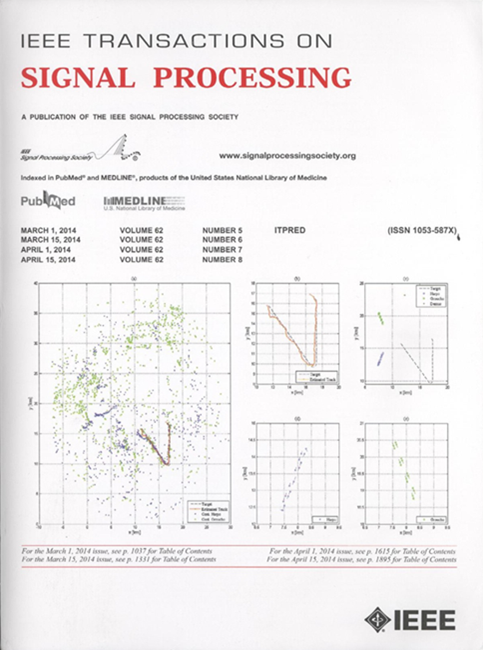复杂目标环境下相控阵雷达异构时间资源安排与精细跟踪
IF 5.8
2区 工程技术
Q1 ENGINEERING, ELECTRICAL & ELECTRONIC
引用次数: 0
摘要
复杂目标环境具有饱和、高速、高机动等特点,对目标跟踪提出了越来越高的要求。在这种情况下,传统相控阵雷达(PAR)面临着跟踪资源有限和滤波器模型不匹配的困境。针对这些问题,本文提出了一种异构时间资源安排(HTRA)和精细跟踪(RT)方法。首先,为了减轻机动模型失配的影响,考虑不同测量值对机动模型校正的影响,对传统的强跟踪滤波器进行了改进,并将RT方法作为一个基于残差一致性准则的优化问题;然后,为了合理分配和安排有限的时间资源,通过定义多维时间资源向量,采用RT后验估计协方差作为性能指标,设计性能驱动的HTRA框架,实现模型失配条件下的时间分配。仿真结果表明,与传统方法相比,HTRA和RT联合策略在给定时间资源预算内显著提高了复杂目标的跟踪性能。本文章由计算机程序翻译,如有差异,请以英文原文为准。
Heterogeneous Time Resource Arrangement and Refined Tracking for Phased Array Radar Within Complex Target Environment
Complex target environments present characteristics of saturation, high speed, and high maneuverability, posing increasingly challenging demands for target tracking. In this context, traditional phased-array radar (PAR) faces the dilemma of limited tracking resources and filter model mismatch. To address these issues, this paper proposes a heterogeneous time resource arrangement (HTRA) and refined tracking (RT) method. Firstly, to mitigate the impact of maneuvering model mismatch, we modify the traditional strong tracking filter by considering the effect of different measurements on the correction of the maneuvering model, and formulate the RT method as an optimization problem according to the residual consistency criterion. Then, to properly allocate and arrange limited time resources, by defining a multidimensional time resource vector, we adopt the posterior estimate covariance from RT as a performance metric, and design a performance-driven HTRA framework to achieve time assignment under model mismatch conditions. Simulation results demonstrate that, compared to traditional approaches, the joint HTRA and RT strategy significantly enhance the tracking performance of complex targets within a given time resource budget.
求助全文
通过发布文献求助,成功后即可免费获取论文全文。
去求助
来源期刊

IEEE Transactions on Signal Processing
工程技术-工程:电子与电气
CiteScore
11.20
自引率
9.30%
发文量
310
审稿时长
3.0 months
期刊介绍:
The IEEE Transactions on Signal Processing covers novel theory, algorithms, performance analyses and applications of techniques for the processing, understanding, learning, retrieval, mining, and extraction of information from signals. The term “signal” includes, among others, audio, video, speech, image, communication, geophysical, sonar, radar, medical and musical signals. Examples of topics of interest include, but are not limited to, information processing and the theory and application of filtering, coding, transmitting, estimating, detecting, analyzing, recognizing, synthesizing, recording, and reproducing signals.
 求助内容:
求助内容: 应助结果提醒方式:
应助结果提醒方式:


